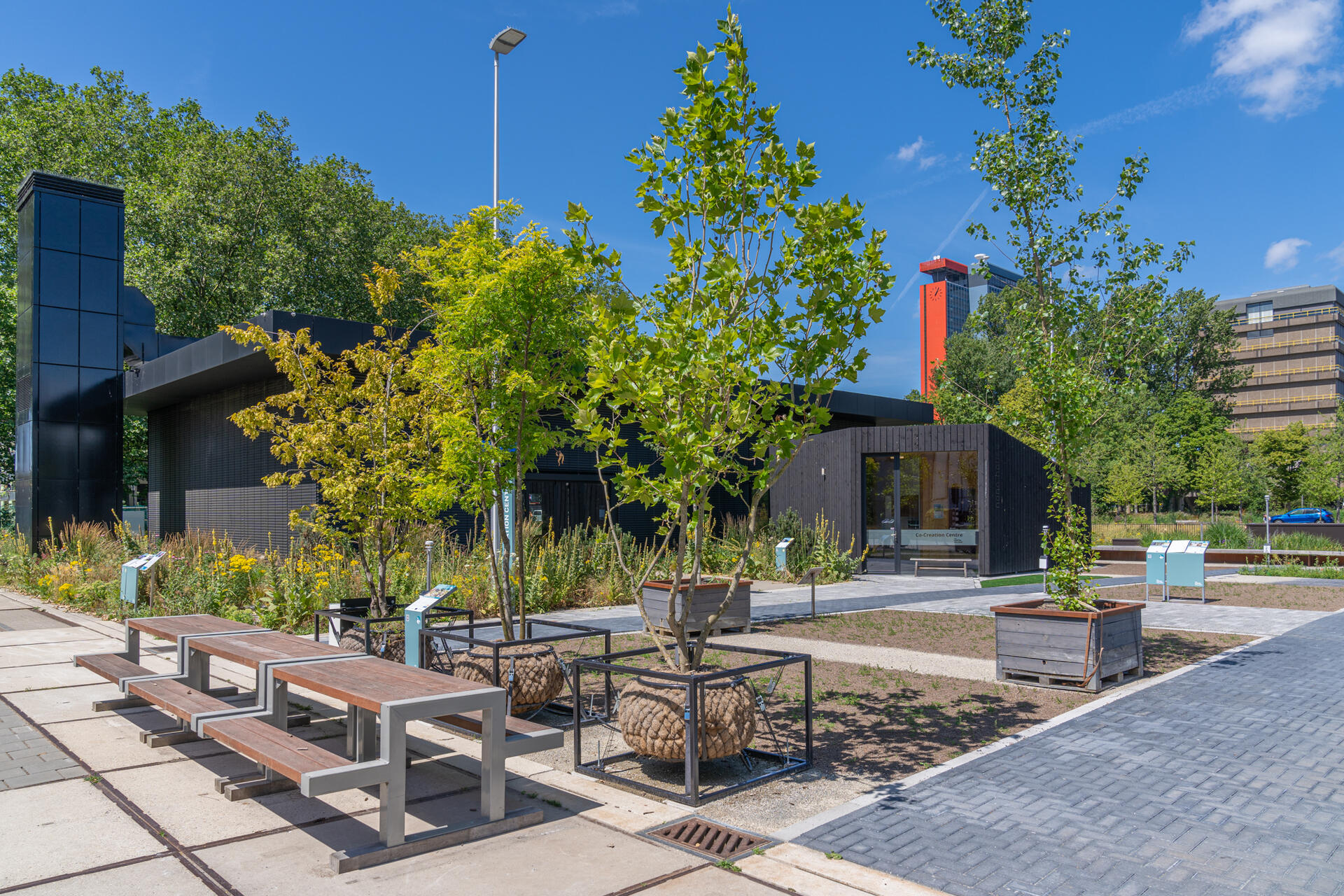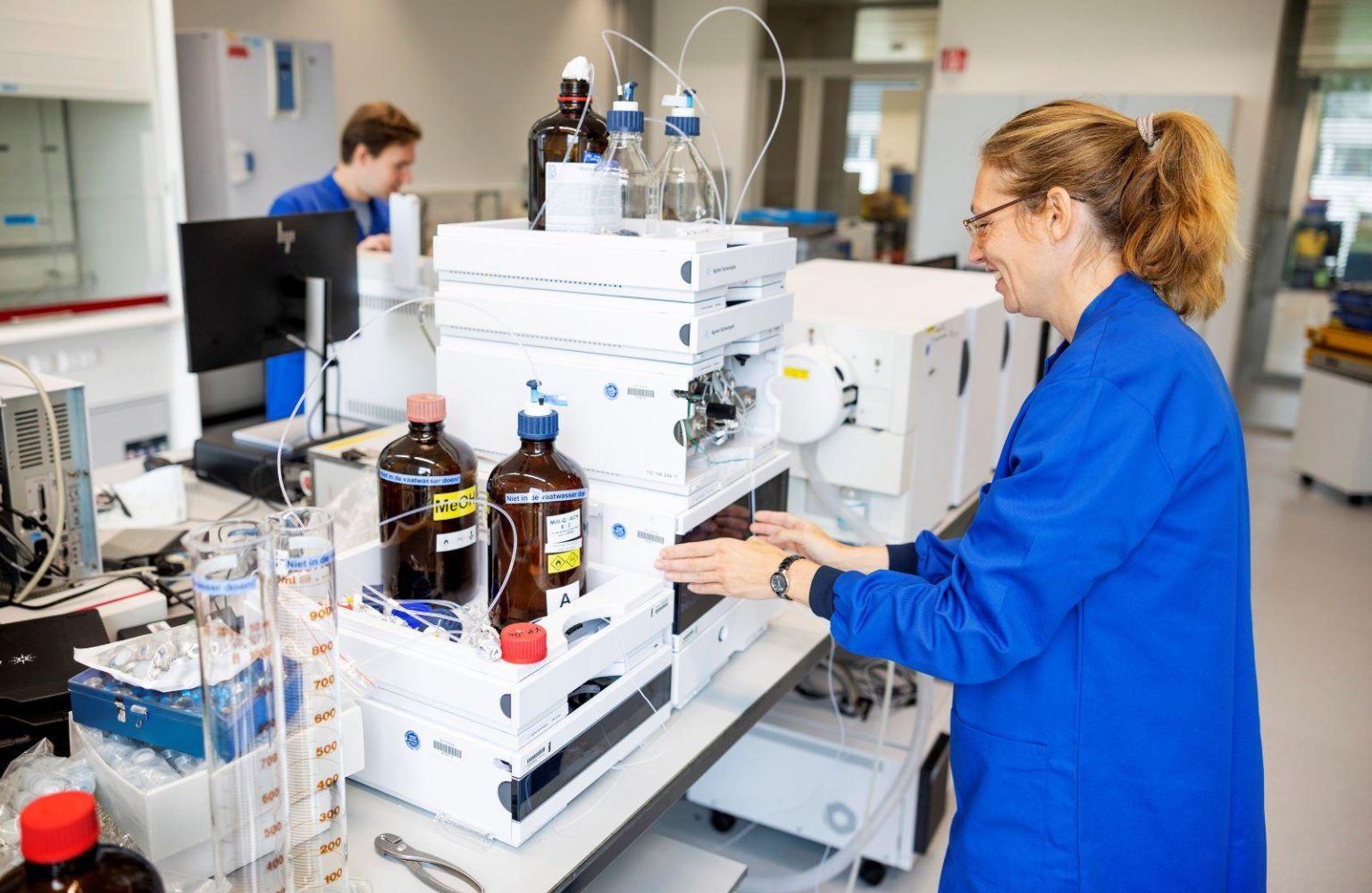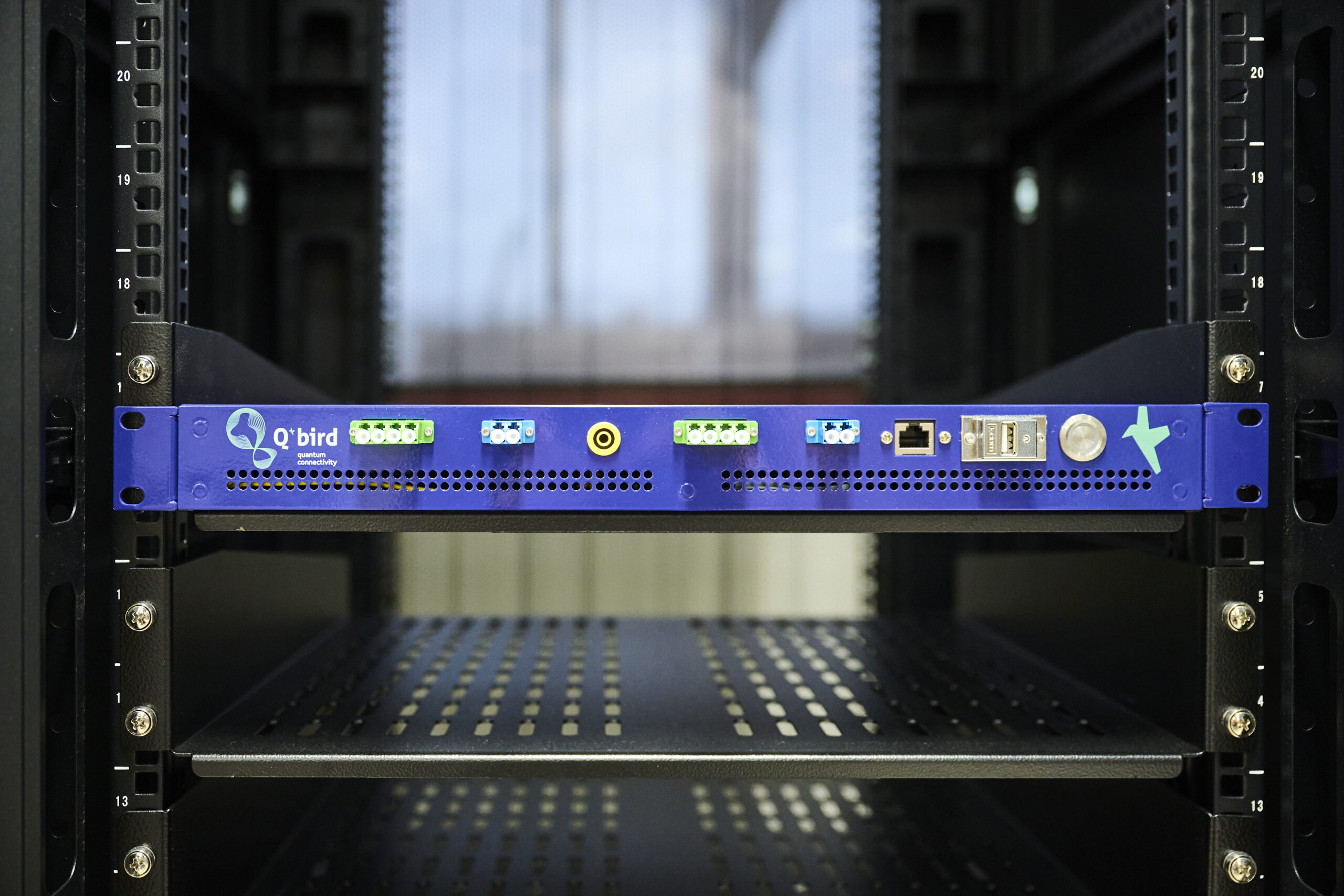Qlayers is a fast growing start-up that focuses on applying coatings in an automated and environmentally friendly manner with the help of innovative robots. The company has experienced fast growth in recent years and already serves clients from several industries over the entire world. After finding accommodation in various temporary locations in Delft and a short stay in the Hague, Qlayers has been looking for a permanent space to accommodate their continuing growth, preferably in Delft, the company’s home base. Thanks to the ‘Delft Makes Space’ initiative, they have now found the ideal building on the Schieoevers.
Much demand for manufacturing space in Delft
Qlayers is not the only company that finds it difficult to find a suitable commercial space. There is a lack of manufacturing space in particular: the Municipality of Delft estimated the demand for manufacturing space in the past at 100,000 m². Luc Schrover, from TU Delft Campus, focuses on improving and strengthening the opportunities for companies to find a suitable base for their operations in Delft together with the municipality. ‘Over 200 start-ups are located on the TU Delft Campus, and many of them are experiencing rapid growth. At TU Delft Campus, we assist start-ups in their search for suitable space on the Campus or in the direct vicinity. For example, the NEXT Delft accelerator building, in which scale-ups can base themselves, was recently developed here with several parties. This represents a good step towards keeping these fast-growing start-ups in our ecosystem. We also stay in close contact with real estate owners. We do our utmost to ensure that start-ups who would actually prefer to remain in Delft are not forced to move their base of operations to other cities.’
Delft Makes Space
The Municipality of Delft, the Delft Entrepreneurs Fund, and the Schieoevers Business Association and TU Delft Campus organised ‘Delft Makes Space’, an event that brings parties looking for real estate together with real estate providers. Direct and open discussions are the best way to remove prejudices about renting to start-ups. The first edition was a great success. No fewer than 80 customers and suppliers of manufacturing space discussed the challenge of how we can create more manufacturing space in Delft. In order to retain companies for Delft, so that the economy and therefore employment in Delft can grow. “We are pleased that ‘Delft Makes Space’ has led to concrete matches and we are happy to work with our partners to maintain successful start-ups in Delft. In this way we remain an attractive place for entrepreneurs, whether they are start-ups, scaleups or larger companies,” says Monique Martens, advisor knowledge of innovative companies at the Municipality of Delft.
Schrover: ‘Real estate owners are often somewhat reluctant to rent properties to start-ups due to the financial uncertainty surrounding such start-ups. In my view, this is unfortunate, as they are ambitious entrepreneurs with a solid financial business case. During ‘Delft Makes Space’, we make it possible for parties to enter into direct face-to-face discussions who would otherwise not be very likely to meet each other. In addition, misunderstandings sometimes exist with regard to the type of commercial space needed. Companies use manufacturing spaces to test and further develop their product.’ Real estate developers tend to associate manufacturing space with large halls and sheds and work processes that cause noise pollution. This is usually not accompanied by nuisance, although this is often assumed.”
Match made in heaven
During the first edition of ‘Delft Makes Space’, Josefien Groot, founder of QLayers, explained her company’s desire to remain in Delft and described the kind of space they needed to be able to continue growing. And she succeeded. After her pitch, Martin Plug, owner of various properties in Delft, realised that he had a suitable building for Qlayers on offer. Groot: ‘This building was a match made in heaven. A great deal of work still needed to be done, but Martin quickly made it clear that he was ready and willing to make it work. Besides office space, Qlayers also needs ‘manufacturing space’, in this case a large hall where their sprayers can stand and ample parking space for the trailers containing their robots. ‘Martin was willing to modify the building to create a perfect workspace.’ Groot is thrilled to be able to move back to Delft near the University and TU Delft Campus: ‘Here is where it all happens for us. Here we are near other innovative companies and talent. Our staff studied here and live in Delft or the vicinity. TU Delft is the prime supplier of our future personnel with engineering degrees and the connection is really quite strong.’
Next edition already in the works
Groot hopes that the next edition of ‘Delft Makes Space’ will help more companies to find the space they need. ‘The various parties participating need to be open to each other’s ideas. This initiative brings the right people together’, explains Groot.
The next edition of ‘Delft Makes Space’ will take place in the autumn of 2022.



